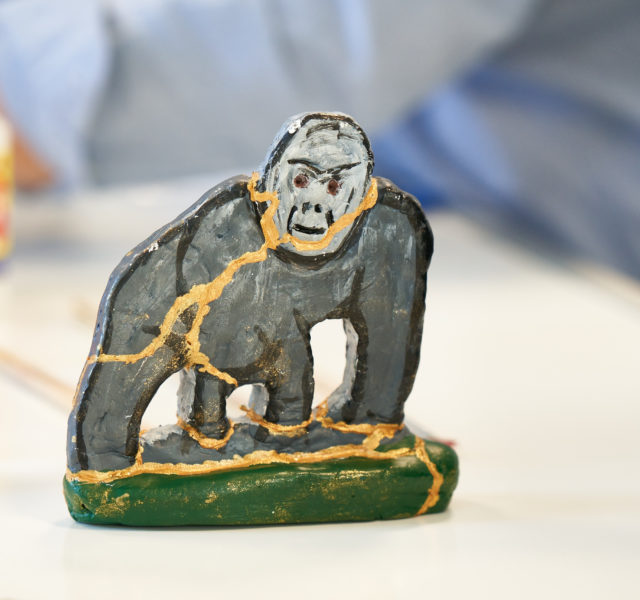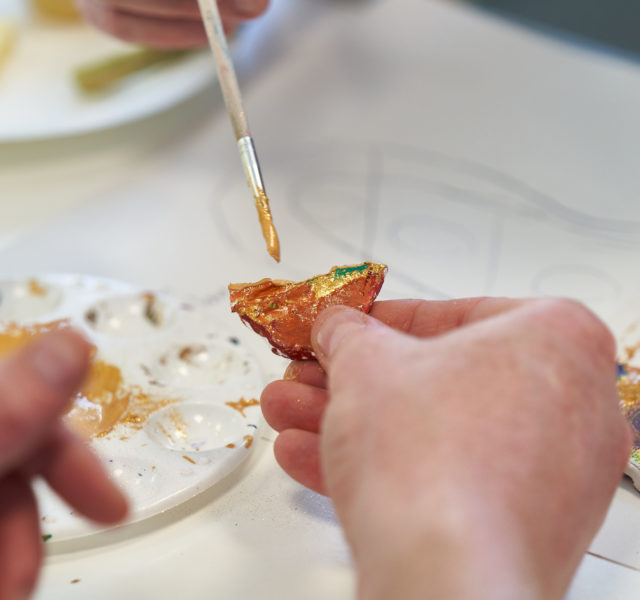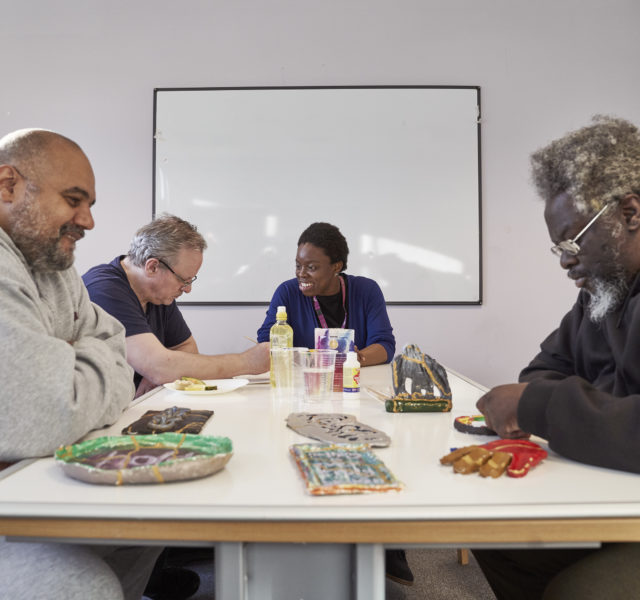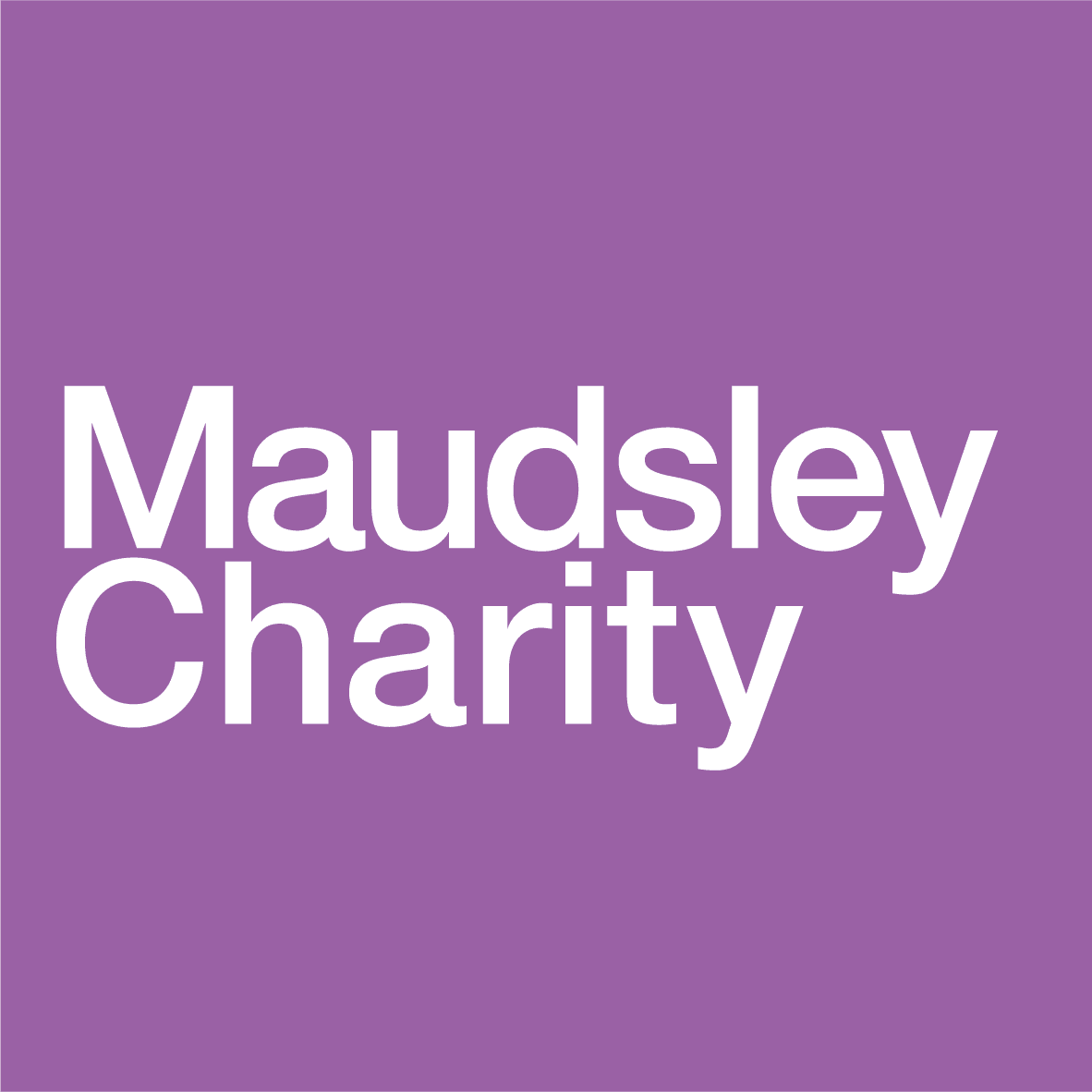Kintsugi workshops are a Recovery College course offered at Bethlem Royal Hospital’s forensic wards, and is funded through a Restorative Justice programme, supported by the Maudsley Charity.
Kintsugi is based on a Japanese technique for repairing broken pottery with seams of gold, and teaches us to embrace the healing of our own scars given to us throughout life.
Seeing the beauty in brokenness
The philosophy of Kintsugi (meaning “golden joinery” in Japanese) is about being non-judgemental, accepting, and compassionate towards ourselves. Facilitators and workshop participants explore the connections between the Kintsugi way and the recovery journey.
Finlay Wood, Restorative Justice Practitioner and Kintsugi Course Host says: “It can be used to explore how to value the journey of life, how to carry our brokenness well, and how to see the beauty in our cracks and those of others.”
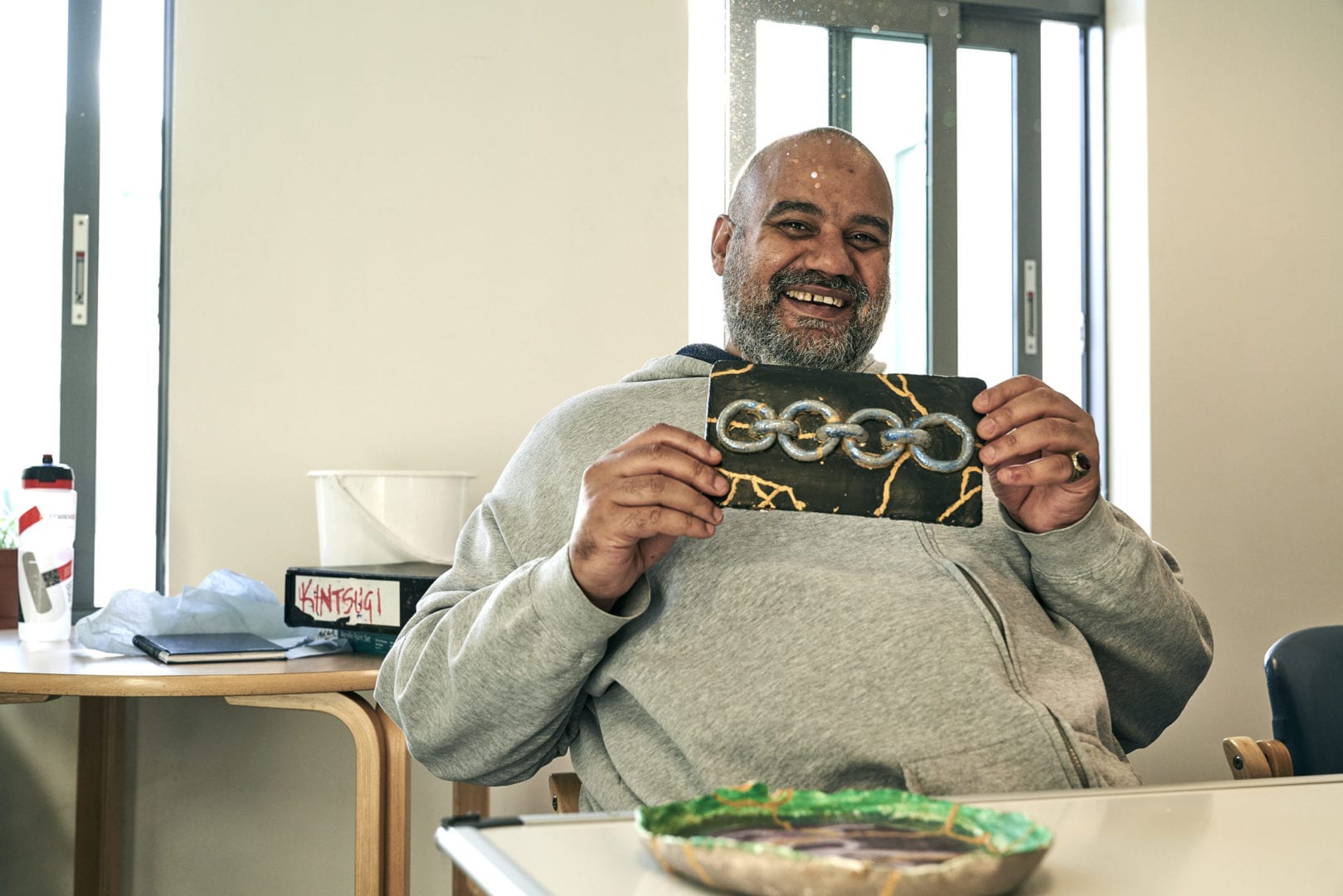
Self-reflection and recovery
In the workshops, participants start by making and decorating an object from air drying clay. The object, such as a dish or depiction of a meaningful item, is then broken, and repaired using glue sprinkled with gold pigment.
Learners are encouraged by the facilitators and their peers to have safe, non-threatening conversations about their life stories, ‘wounds’, and the harmed caused to others to encourage self-reflection and to promote recovery. As one beneficiary said: “I have learnt that everyone has a breaking point, but one can recover from this through the journey of life.”
The workshop series was co-produced with staff and patients, and originated from another course looking at victim awareness, and how those with mental illness are also victims of what has happened to them.
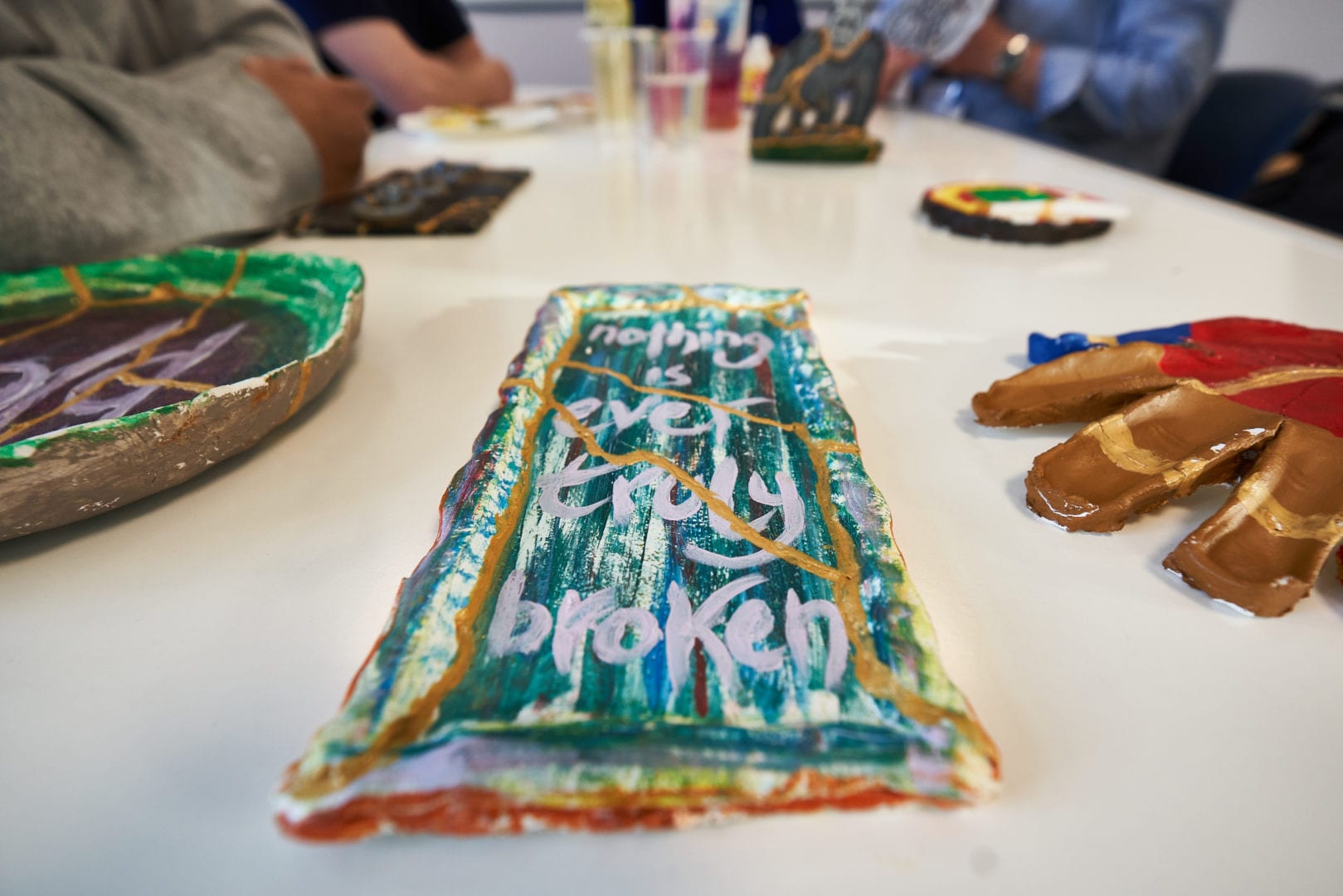
Facing your deepest fears to find inner peace
Kray is one of the patients who helped to develop and lead the Kintsugi course at River House. Over the course of a year, he worked with Gerard Drenan, Head of Psychology, Forensic & Offender Health Pathway and Finlay Wood, Restorative Justice Practitioner and Kintsugi Course Host, to learn about the concept of Kintsugi and develop it into a course. To become a peer trainer, he completed an NVQ level 3 in Support and Guidance with St Giles Trust.
Kray says: “As a peer trainer my role was to give some lived experience which was to empower the group and to think of their own journey. It really helps to put together the pieces of your life that have affected you. By doing so, you face it and take ownership of your journey.”
"Kintsugi is an art that helps to feel your deepest fear and problems of your journey, to be in touch with them emotionally, and work on them to find inner peace and or support."
